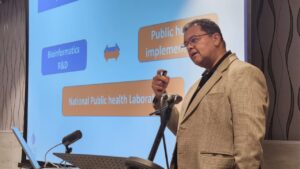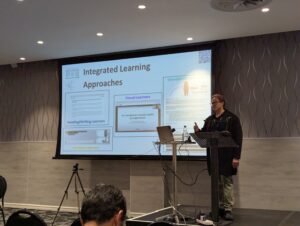
It’s been a while since our last update but during that time the Pipelines and Visualization Working has made substantial progress. First and foremost, I would like to acknowledge the contribution of the previous chairs Prof. Torsten Seemann and Sam Minot who were instrumental in establishing the working group remit and the initial landscape review. There are many bioinformatics challenges facing Public Health in light of the COVID-19 global pandemic, some of which include: Generating consensus assemblies, raw sequence submission to internationally-accessible databases; screening samples for variants of concern; performing phylogenetic analysis to track the global transmission and variance of samples and to support local outbreak investigations to make real time public health decisions. The cumulative impact of community defined solutions has undoubtedly been a factor in improving support in resources and training over the last year.
I am pleased to highlight progress made since the last working group update was published last year. The Working Group has collaborated on a technical project highlighting Bioinformatics Solutions for SARS-CoV-2 Genomic Epidemiology. The project has been widely discussed in our fortnightly meetings and has raised key perspectives to reconcile in the community such as infrastructure, cloud based solutions and training users to understand and apply bioinformatics techniques for analysis. Further discussions have revealed a need for increased communication and collaboration between pipeline and software developers and end users. These ideas represent important building blocks in expanding the Pipelines and Visualization community.
In the coming months, we’re expecting to work strategically with the PHA4GE Sub-grant awardees in developing and promoting sustainable development in bioinformatics to support Public Health in Antimicrobial resistance and SARS-CoV-2 sequencing. In our collaboration efforts, we wish to jointly identify key best practices to build capacity in sequence data analysis and data sharing that is both interoperable and reproducible.
If any of the topics mentioned in this update may be of particular interest, please feel free to join the Pipelines and Visualization Working Group to participate in our discussions at our meetings or on the PHA4GE Slack Channel. Fresh contributions are especially welcome.
Last but not least, I wish to welcome and congratulate Kevin Libuit on his appointment as Working Group co-chair, and we wish him every success in his new position and look forward to collaborating on many future projects at PHA4GE and elsewhere.
Jamie Southgate
Pipelines & Visualization Working Group Chair



